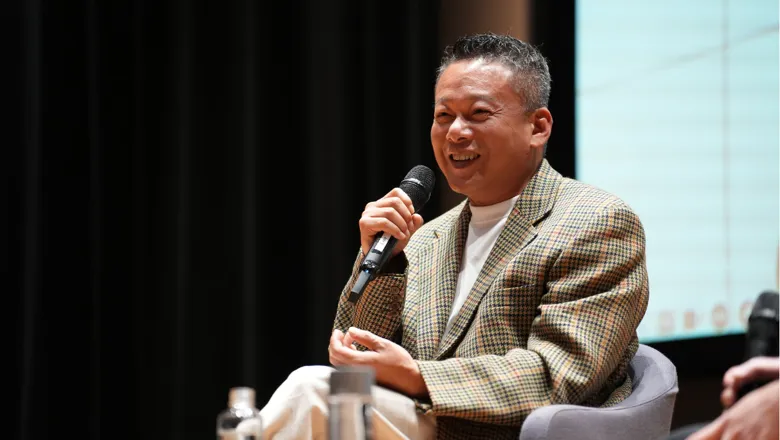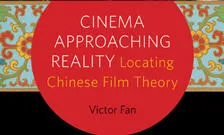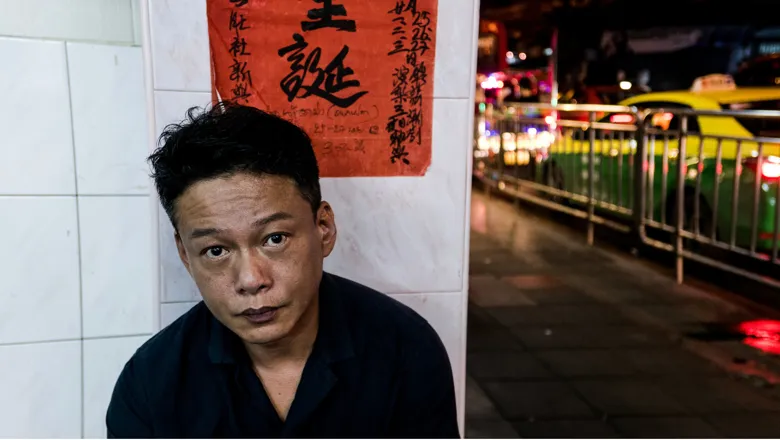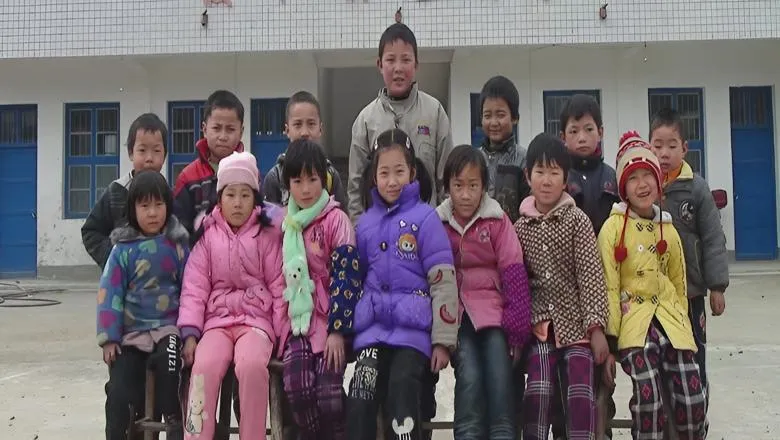
Professor Victor Fan
Professor of Film and Media Philosophy
Research interests
- Arts
- Media
Biography
Victor Fan Fan graduated with a PhD from the Film Studies Program and the Comparative Literature Department of Yale University, and an MFA in Film and Television Productions at School of Cinema-Television (now School of Cinematic Arts), University of Southern California. Prior to his position at King’s, he was Assistant Professor at the Department of East Asian Studies, McGill University. He is the author of Cinema Approaching Reality: Locating Chinese Film Theory (University of Minnesota Press, 2015), Extraterritoriality: Locating Hong Kong Cinema and Media (Edinburgh University Press, 2019), and Cinema Illuminating Reality: Media Philosophy through Buddhism (University of Minnesota Press, 2022).
Fan’s articles have been published in peer-review journals including Journal of Cinema and Media, Asian Cinema, World Picture Journal, Camera Obscura, Journal of Chinese Cinemas, Screen, Film History: An International Journal, CLCWeb: Comparative Literature and Culture, 24 Images: Cinéma, Dianying yishu [Film Art], Zihua [Zifaa or Word blossoms], Siyi, and many edited volumes. His film The Well was an official selection of the São Paolo International Film Festival; it was also screened at the Anthology Film Archives, the Japan Society, and the George Eastman House.
Besides his academic career, Fan is also a Film Consultant. He has worked closely with film festivals in Europe and Asia (please see ‘Expertise and public engagement’).
Fan is a classically trained musician and a working composer. He was a performance artist with his own theatre company Post [ET]2! in Hong Kong between 1993 and 1996. He also worked as a freelance sound editor, film composer, and re-recording mixer. He worked at Fissionarts (Los Angeles) and Solar Film/Video Productions (NYC) between the late 1990s and the mid 2000s. In New York, he also wrote for the magazines Film Festival Reporter and Film Festival Today, covering news from the MIX Festival, the New York Underground Film Festival, the African Diaspora Film Festival and MOXIE Film.
Research interests and PhD supervision
- Comparative film and media theories and philosophies (between Europe, North America, China/Sinophone, and Asia) and Asia as method
- Chinese and Sinophone cinemas and medias
- Queer and Trans Cinema and Media
For more details, please see his full research profile.
Selected publications
- Cinema Illuminating Reality: Media Philosophy through Buddhism (Minneapolis: University of Minnesota Press, 2022, forthcoming).
- Extraterritoriality: Locating Hong Kong Cinema and Media (Edinburgh: University of Edinburg Press, 2019).
- Cinema Approaching Reality: Locating Chinese Film Theory (Minneapolis: University of Minnesota Press, 2015); nominated for the Kraszna-Krausz Book Award (Moving Image).
- ‘Cinematic Imaging and Imagining through the Lens of Buddhism’, in New Takes on Film and Imagination, (ed.) Sarah Cooper, Paragraph: A Journal of Modern Critical Theory 43, no. 3 (November 2020): 364–80.
- ‘Illuminating Reality: Cinematic Identification Revisited in the Eyes of Buddhist Philosophies’, in The Structures of the Film Experience by Jean-Pierre Meunier: Historical Assessments and Phenomenological Expansions, (eds) Julian Hanich and Daniel Fairfax (Amsterdam: Amsterdam University Press, 2019), 245–58.
Expertise and public engagement
Fan maintains an active relationship with the media and the larger community. Fan is an independent film festival consultant. He served as Film Consultant of Chinese Visual Festival (London) from 2013–2021, and he was Head Mentor of the Youth Jury and Critics Programme of the Singapore International Film Festival in 2016 and 2018. He has also introduced/recommended films, conducted Q&A’s, or participated in roundtables at the BFI, the London East Asian Film Festival, International Film Festival Rotterdam, Five Flavours Film Festival, Le Giornate del Cinema Muto (Pordenone), and Edinburgh International Film Festival, the Asian Film Awards Academy, Imagine, Electric Shadow, and the Harvard Film Archive.
Fan often gives both academic and public lectures and seminars in the UK, Europe, North America, and Asia. He also gave interviews at FACULTI and the BBC.
Teaching
Fan mostly teaches modules on film and media theory and philosophy, production, and Chinese/Sinophone cinema.
Monographs
Fan’s most recent monograph is Cinema Illuminating Reality: Media Philosophy through Buddhism (University of Minnesota Press, 2022). It asks the question: How can a philosophical discourse generated in Asia help us reframe and renew cinema and media theory? Cinema Illuminating Reality provides a possible way to do this by using Buddhist ideas to examine the intricate relationship between technicity and consciousness in the cinema. The resulting dialogue between Buddhism and Euro-American philosophy is the first of its kind in film and media studies.
Victor Fan examines cinema’s ontology and ontogenetic formation and how such a formational process produces knowledge, political agency, and in-aesthetics. Buddhism allows Fan to deconstruct binary thinking and reimagine media as an ecology, rethinking cinema in relational terms between the human and the machine. Along the way, Fan considers a wide variety of case studies from around the globe, while paying special attention to how contemporary Tibeto-Sinophone filmmakers have adopted relational thinking to detail ways of rebuilding a world that appears to be beyond repair.
Fan’s previous monograph is Extraterritoriality: Locating Hong Kong Cinema and Media (Edinburgh University Press, 2019). Examining how Hong Kong filmmakers, spectators and critics wrestled with this perturbation between the Leftist Riots (1967) and the aftermath of the Umbrella Movement (2014), this book traces how Hong Kong’s extraterritoriality has been framed: in its position of being doubly occupied and doubly abandoned by contesting juridical, political, linguistic and cultural forces.
Extraterritoriality scrutinises creative works in mainstream cinema, independent films, television, video artworks and documentaries – especially those by marginalised artists – actively rewriting and reconfiguring how Hong Kong cinema and media are to be defined and located.
Fan’s first monograph is Cinema Approaching Reality: Locating Chinese Film Theory (University of Minnesota Press, 2015). In this book, Victor Fan brings together, for the first time, Chinese and Euro-American film theories and theorists to engage in critical debates about film in Shanghai and Hong Kong from the 1920s through the 1940s. His point of departure is a term popularly employed by Chinese film critics during this period, bizhen, often translated as ‘lifelike’ but best understood as ‘approaching reality’. What these Chinese theorists mean, in Fan’s reading, is that the cinematographic image is not a form of total reality, but it can allow spectators to apprehend an effect as though they had been there at the time when an event actually happened.
Fan suggests that the phrase ‘approaching reality’ can help to renegotiate an aporia (blind spot) that influential French film critic André Bazin wrestled with: the cinematographic image is a trace of reality, yet reality is absent in the cinematographic image, and the cinema makes present this absence as it reactivates the passage of time. Fan enriches Bazinian cinematic ontology with discussions on cinematic reality in Republican China and colonial Hong Kong, putting Western theorists – from Bazin and Kracauer to Baudrillard, Agamben, and Deleuze – into dialogue with their Chinese counterparts. The result is an eye-opening exploration of the potentialities in approaching cinema anew, especially in the photographic materiality following its digital turn.
News
'Long takes allow us to engage in time' – Lee Kang-sheng in conversation
Award-winning Taiwanese actor and filmmaker, Lee Kang-sheng spoke at King’s about his career, his working relationship with director Tsai Ming-liang and his...

Cinema Approaching Reality: Locating Chinese Film Theory
Film Studies lecturer Dr Victor Fan celebrates the release of his new book, Cinema Approaching Reality: Locating Chinese Film Theory

Events

Conversation with Lee Kang-sheng
Award-winning actor and filmmaker Lee Kang-sheng will join us at King’s to have a conversation with Dr Victor Fan, Reader in Film and Media Philosophy,...
Please note: this event has passed.

'Children at a Village School' - film screening and discussion
Join us for a special screening of independent Chinese documentary-film 'Children at a Village School' on China's left-behind children as part of China Week...
Please note: this event has passed.
Features
Student shares experience of Interdisciplinary Humanities PhD support at King's
Markus Beeken, who is working on a PhD in Film Studies, shares how the nature of his research subject lends itself to supervision from an Interdisciplinary...

News
'Long takes allow us to engage in time' – Lee Kang-sheng in conversation
Award-winning Taiwanese actor and filmmaker, Lee Kang-sheng spoke at King’s about his career, his working relationship with director Tsai Ming-liang and his...

Cinema Approaching Reality: Locating Chinese Film Theory
Film Studies lecturer Dr Victor Fan celebrates the release of his new book, Cinema Approaching Reality: Locating Chinese Film Theory

Events

Conversation with Lee Kang-sheng
Award-winning actor and filmmaker Lee Kang-sheng will join us at King’s to have a conversation with Dr Victor Fan, Reader in Film and Media Philosophy,...
Please note: this event has passed.

'Children at a Village School' - film screening and discussion
Join us for a special screening of independent Chinese documentary-film 'Children at a Village School' on China's left-behind children as part of China Week...
Please note: this event has passed.
Features
Student shares experience of Interdisciplinary Humanities PhD support at King's
Markus Beeken, who is working on a PhD in Film Studies, shares how the nature of his research subject lends itself to supervision from an Interdisciplinary...

